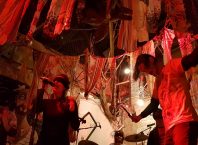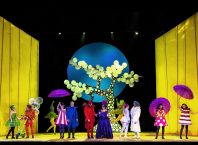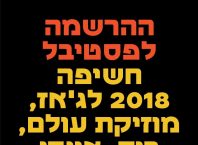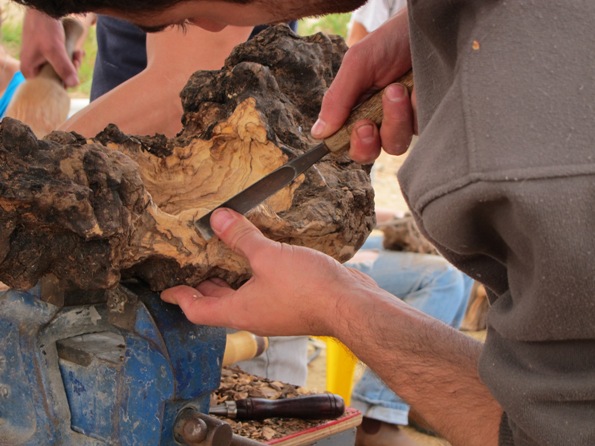
“We are reclaiming crafts,” said Haim Parness, Head of the Department of Industrial Design at Bezalel Academy of Arts and Design, Jerusalem, as we stood on the shore of the Dead Sea where students, faculty, and their families gathered for the 7th Low Tech Design -417 workshops. The department hosts a week long seminar each year, which includes a lecture series at Bezalel, followed by a two day sojourn at the Dead Sea, to explore traditional crafts and methods.
This year’s theme was “Dinnerware & Food,” with lectures by Bezalel faculty and international guests. The program included: archaeologist Avi Gopher on Paleolithic cutlery and Neolithic cooking; industrial designer Ori Sonnenschein on Design in the shade of a citrus tree; designer Simone Mattar on Design and Food; culinary designer Antto Melasniemi on Beyond Hospitality and Rafram Haddad, artist & coordinator for the Slow Food Movement in Israel on Food!
Midnight East made a short visit to the workshops at the Dead Sea, where the mood was mellow and inviting. The different workshops were set up in zulot (small thatched booths) along the shore. One could walk up, and with some guidance, make flint arrows, make dinnerware out of citrus fruit, make aluminum sand castings, pound out a copper bowl, try one’s hand at blacksmithing or African carving, or make some pottery from Dead Sea mud. The free-flowing atmosphere encourages creativity and spontaneity, and with so many people working at different crafts, the industrious vibe was contagious.
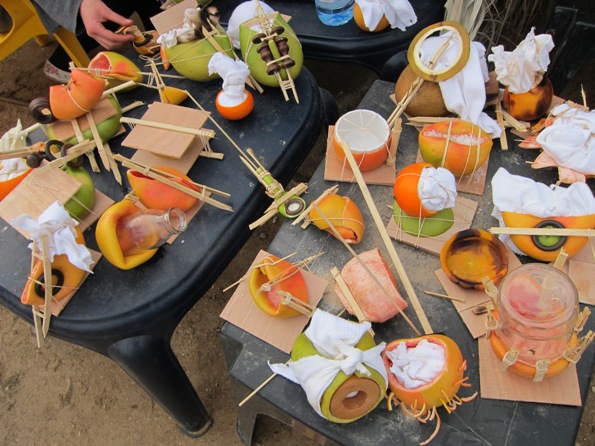
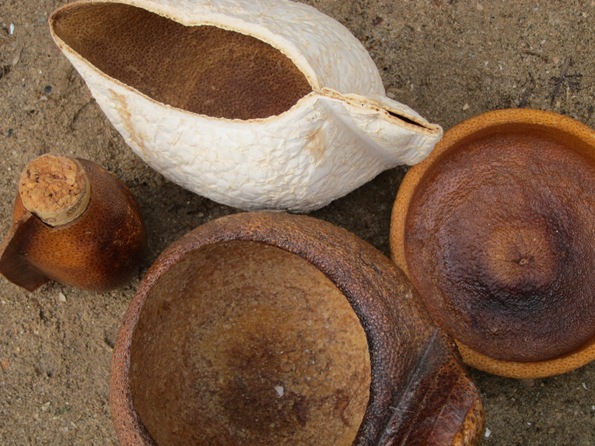
At the pottery stand, mud from the Dead Sea was available as well as more traditional clay for
making hand-built or wheel-thrown pots. One student brought a mold from home to experiment with casting Dead Sea mud, which turned out not to have enough elasticity and tended to crack when dry. I found Omri, a second year student working on a coil-pot, an activity one might tend to associate with young children in a beginning ceramics class. When asked about his choice of activity, Omri said, “I know how to work in a very planned and organized manner, so I’m taking advantage of this opportunity to work more freely. I’m going with my feelings, something we don’t usually do in the department.”
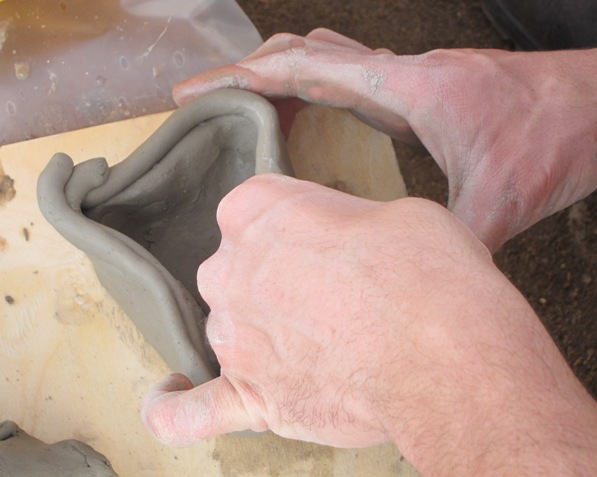
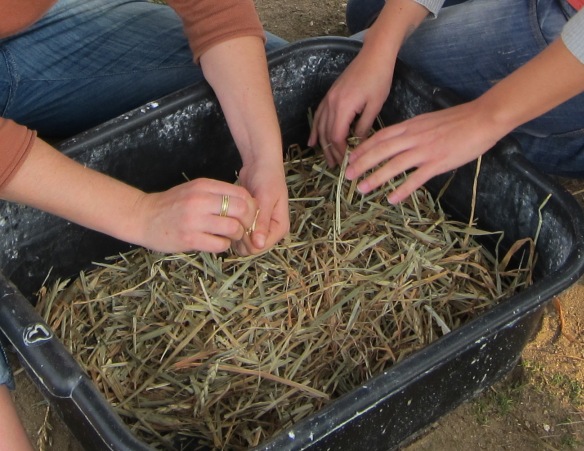
Hadas, a third-year student and Noga, a fourth year student were experimenting with straw they brought from Kibbutz Regba, to see if it could be worked into a papier mache for making plates. When I saw them they were breaking and crumbling the straw into small pieces, to which they would add flour, water and perhaps some starch to hold the paste together.
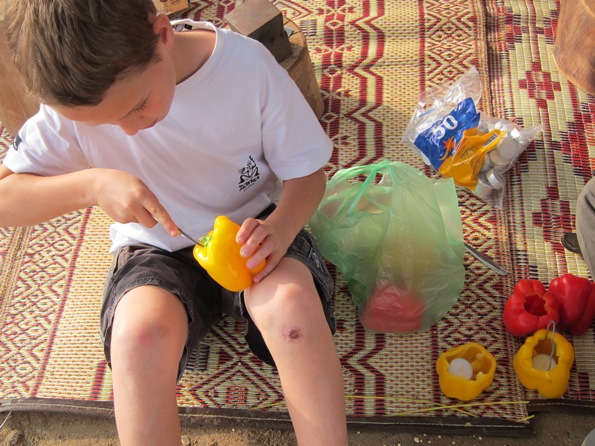
One young participant brought some supplies from home to try out his own dinnerware & food related idea: pepper candles.
The vagaries of the weather were an incentive to improvisation. Culinary designer Antto Melasniemi had planned a meal to cook in a solar kitchen, but the lack of sun suggested an alternative. “We’re going to do an earth oven,” he said undaunted, “we’ll just throw in some vegetables and see what comes out.”
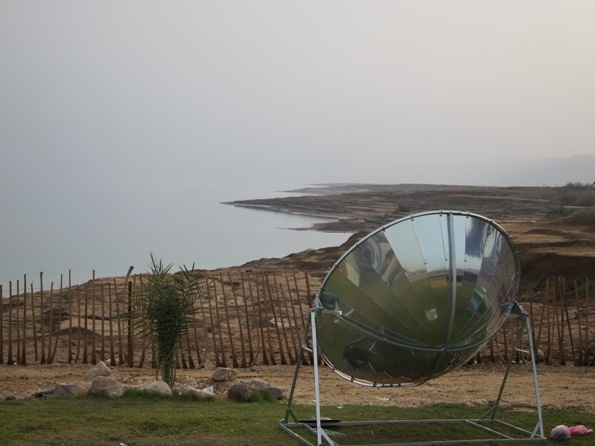

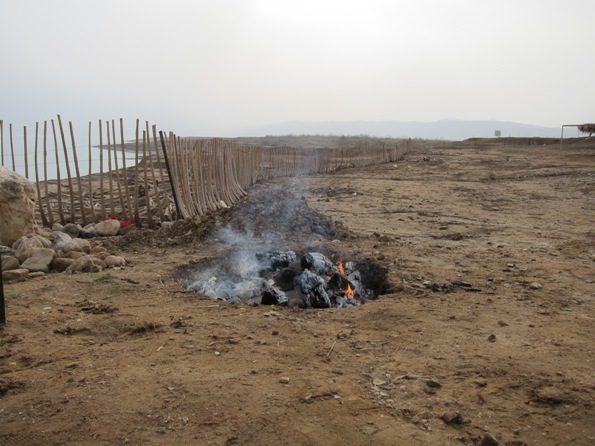
A very different approach to learning and design, the Dead Sea workshops seem to be fun for everyone. Asked what he would like the students to glean from this experience, Department Head Parnes said, “I would like to connect students to the vast stores of human knowledge. This is a field that developed from crafts. Our students, as designers of the future are expected to further develop and advance industrial design. How can they do that without the foundations?”
To see more photos from the workshops on Midnight East’s facebook page, click here.

